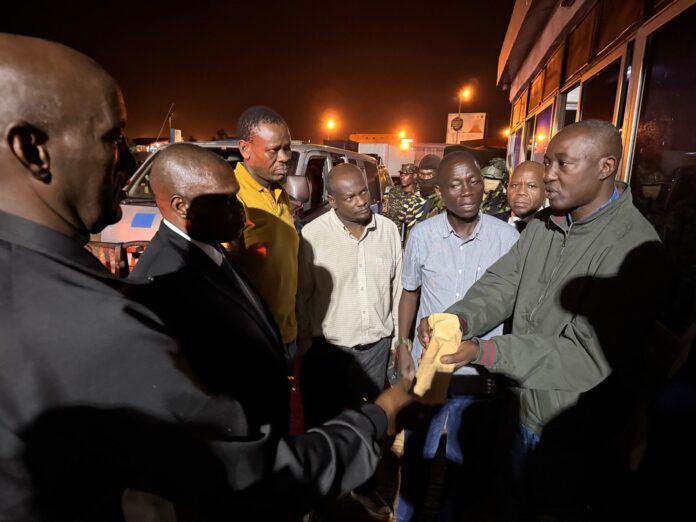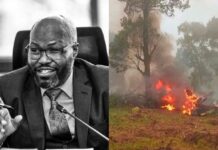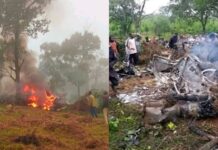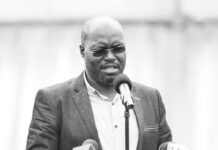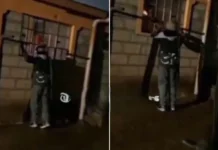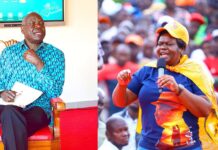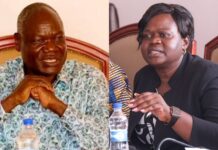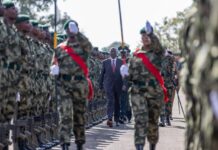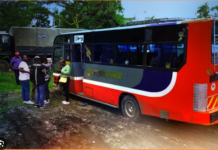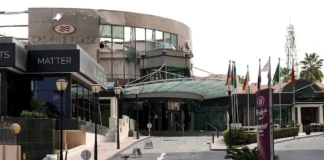Written by Were Kelly
Two Kenyan activists who were forcibly disappeared in Uganda for 39 days have been freed and repatriated. Bob Njagi and Nicholas Oyoo were handed over to Kenyan authorities at the Busia border post on the night of Friday, November 7, into Saturday, November 8, 2025, following weeks of sustained pressure from human rights organisations and formal protests by the Kenyan government.
The two men were abducted at a petrol station in Kampala on October 1. They were in Uganda to support the presidential campaign of the prominent opposition leader, Bobi Wine. Throughout their ordeal, they were held incommunicado, with their whereabouts unknown to their families and legal representatives. Upon their release, they were described as being in poor physical condition and in need of immediate medical attention, with organisations like VOCAL Africa facilitating their transfer to Nairobi for health assessments and family reunions.
The circumstances of their detention have sparked serious allegations and diplomatic friction. Bobi Wine, whose real name is Robert Kyagulanyi, stated that he spoke directly with the activists following their release. He alleged they were held at the Kasenyi military barracks, which he claimed is under the command of President Yoweri Museveni’s son, and that they were subjected to torture during interrogation about their attendance at his manifesto launch in Jinja. These claims align with earlier reports from human rights activist Mwanase Ahmed, who had alleged the men were tortured to the point of unconsciousness at the Mbuya military barracks, another non-gazetted detention site.
Uganda’s official institutions had previously offered little recourse. The Uganda People’s Defence Forces (UPDF) consistently denied holding the activists, asserting that their investigations found no record of them in any official detention facilities. Furthermore, the Ugandan judiciary effectively sanctioned the detention. Justice Simon Peter Kino of the High Court dismissed a habeas corpus application filed to secure their release, refusing to compel the military to produce the men in court without concrete proof they were in its custody.
The breakthrough leading to their freedom was credited to concerted diplomatic and public pressure. Kenya’s Foreign Minister, Musalia Mudavadi, sent a formal protest letter to President Museveni, while the Kenyan High Commissioner to Uganda, H.E. Maangi Joash, worked on the ground to secure their handover. They were formally received at the border by Busia County Commissioner Chaunga Mwachaunga. The release was hailed as a victory by a coalition of human rights groups, including Amnesty Kenya and the Law Society of Kenya, who had campaigned under banners such as #StopAbductionsEA.
Bobi Wine welcomed the activists’ return but used the occasion to issue a stark condemnation of the Ugandan government. “I have spoken to Bob Njagi and Nicholas Oyoo. Pole sana for the gruelling experience in the hands of Museveni’s military,” he stated, adding, “Their abduction and torture confirm that Uganda is a military dictatorship that is now exporting its repression to the region. We have a collective duty to FREE UGANDA.”
A representative from the regional rights group VOCAL Africa echoed the sentiment of relief and continued concern, saying, “While we celebrate their safe return, their 39-day ordeal is a grim reminder of the transnational abductions syndicate operating in East Africa. The relentless campaign by citizens across borders made this possible, but we must remain vigilant.” From the Kenyan side, a government official involved in the handover, who asked not to be named, commented, “Our primary concern was the safe return of our citizens. We engaged all necessary diplomatic channels to achieve this outcome, and we are relieved it has been resolved.”
The incident has cast a long shadow over regional politics, with many observers pointing to concerns about a coordinated “abductions syndicate” involving the governments of Uganda, Kenya, and Tanzania. The release of Njagi and Oyoo, while a immediate cause for relief, leaves unanswered questions about the accountability of security forces and the use of non-gazetted detention sites. As Bobi Wine’s campaign for the 2026 election continues, this event is likely to fuel further debate about political repression and the limits of cross-border solidarity in a region where leaders face increasing scrutiny over their human rights records.









